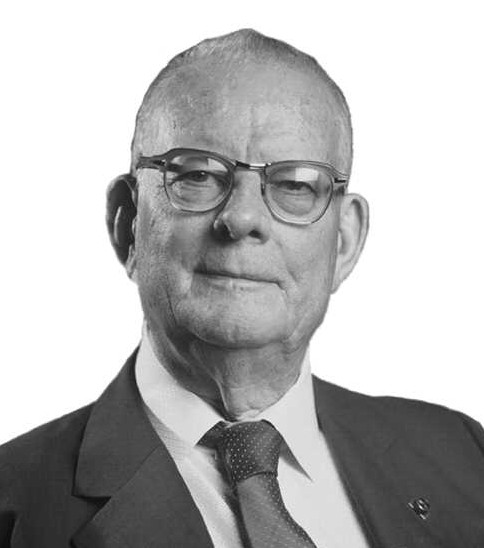Who Was Dr. W. Edwards Deming?

Very few people in this world get to expand their horizons enough to accomplish several goals within their lifetime. Dr. William Edwards Deming was one of those few people who, historically, managed to do just that, with a very successful career that involved engineering, teaching, writing, lecturing, and management in many fields and industries.
William Edwards Deming was born on October 14, 1900, and raised in Iowa, in the United States. His family are descendants of John Deming, who was renowned for being one of the first settlers in the area. At 22 years of age, Deming married Agnes Bell, who passed away just eight years later. He and Agnes had adopted a daughter just a year before she passed away. Deming got married once again two years later to Lola Elizabeth Shupe, and they had two children.
Education
Deming started with a bachelor’s degree in electrical engineering at the University of Wyoming before he attended the University of Colorado to gain his Master’s degree in statistics. He ended his academic years by attending Yale University and achieving a doctorate in statistics and statistical physics.
Deming’s Management Skills
One of the main reasons he was known all over the world was due to his ability to assist and revolutionize large companies, entire nations even, with his management skills. He was to be considered the most influential western management guru in Japan.
The basis for his work in management came from his years of studying with Walter A. Shewhart. Shewhart had very interesting theories about the methods that should be used for statistical control, and this was the foundation for the work that Deming would publish later on.
His Accomplishments in Japan
By 1940, Deming had developed several groundbreaking sampling techniques which he taught to people who worked in wartime production. His methods and techniques became quite useful during WWII. Once the war was over, Deming started to work with major companies in Japan to help them regain control of their economy. Here, he merged his skills with his experience regarding Japanese society and was invited to get involved in several projects with local scientists and engineers. Deming’s techniques had already been studied by JUSE, and they requested his knowledge in order to help reconstruct Japanese organizations in line with his Statistical Quality Control methods. This led to a large number of Japanese manufacturers applying Deming’s principles and techniques which helped Japan take their products to international quality levels.
In 1960, Deming was awarded the Second-Class Order of the Sacred Treasure, an award that had never previously been given to a western collaborator, and he became the first American to receive it. The honor was bestowed on him due to the significant impact his work and guidance had in aiding Japan boost their industrial capabilities to such a magnitude.
His Legacy
Dr. William Edwards Deming died of natural causes at the age of 93 in December 1993 while he slept. His life continues to be an example of the hard work and the incredibly valuable knowledge he shared on the subject of management.